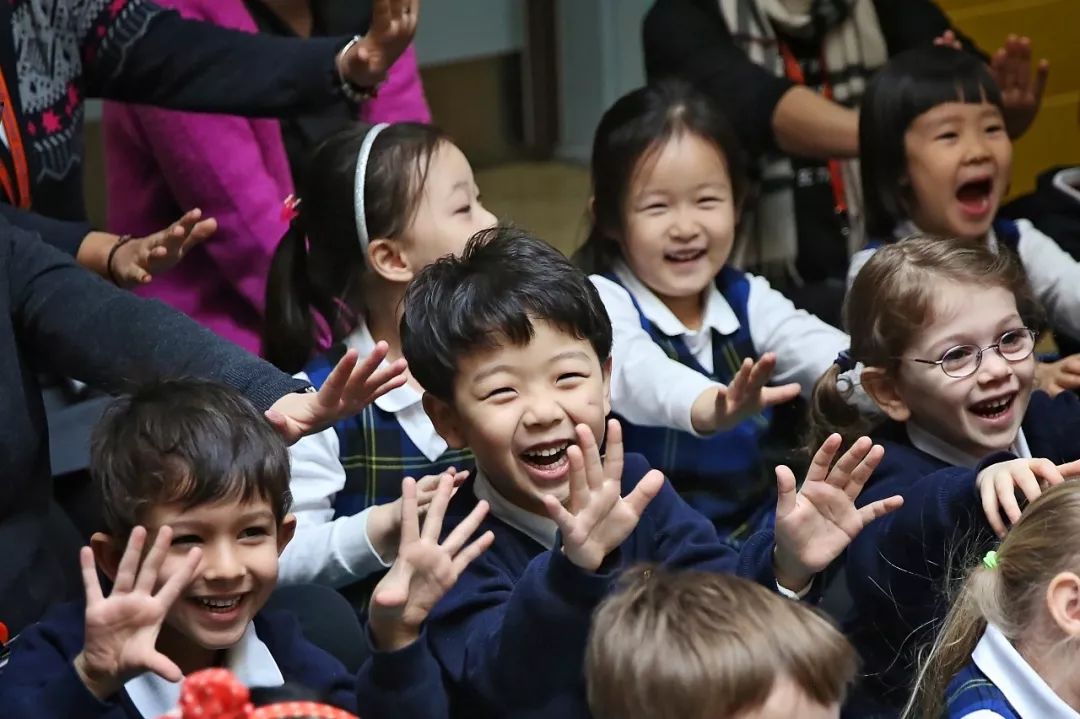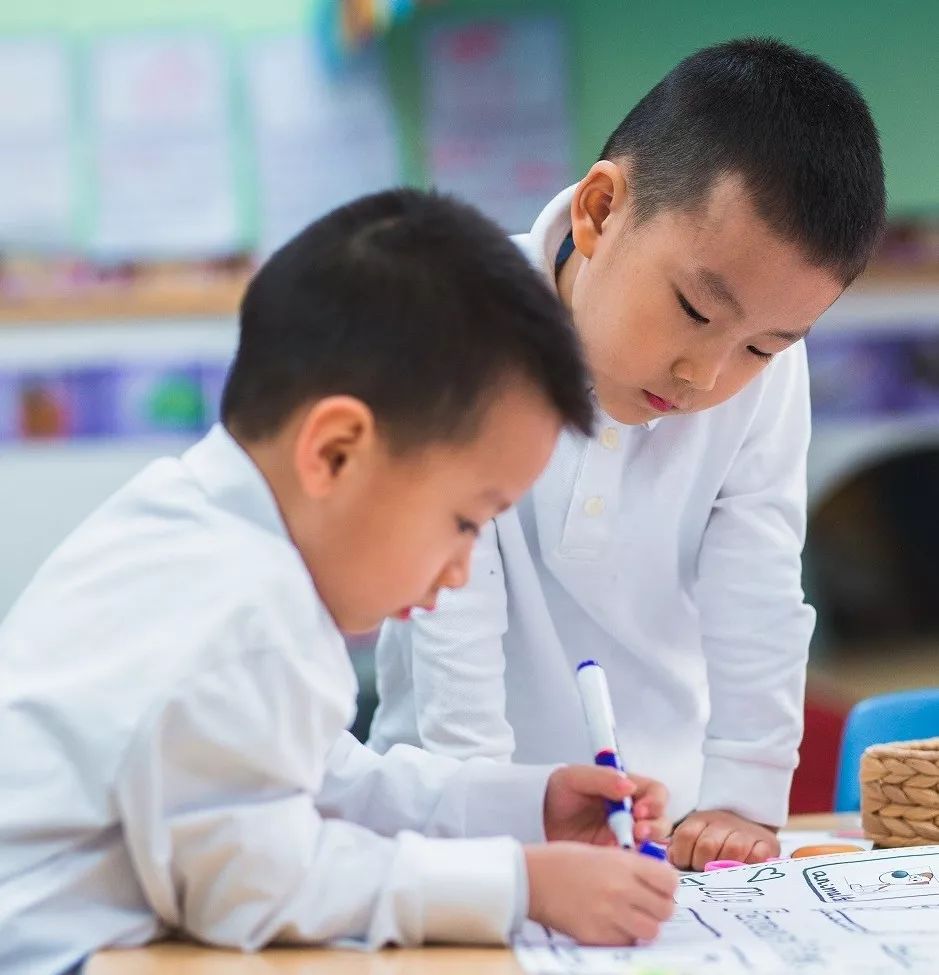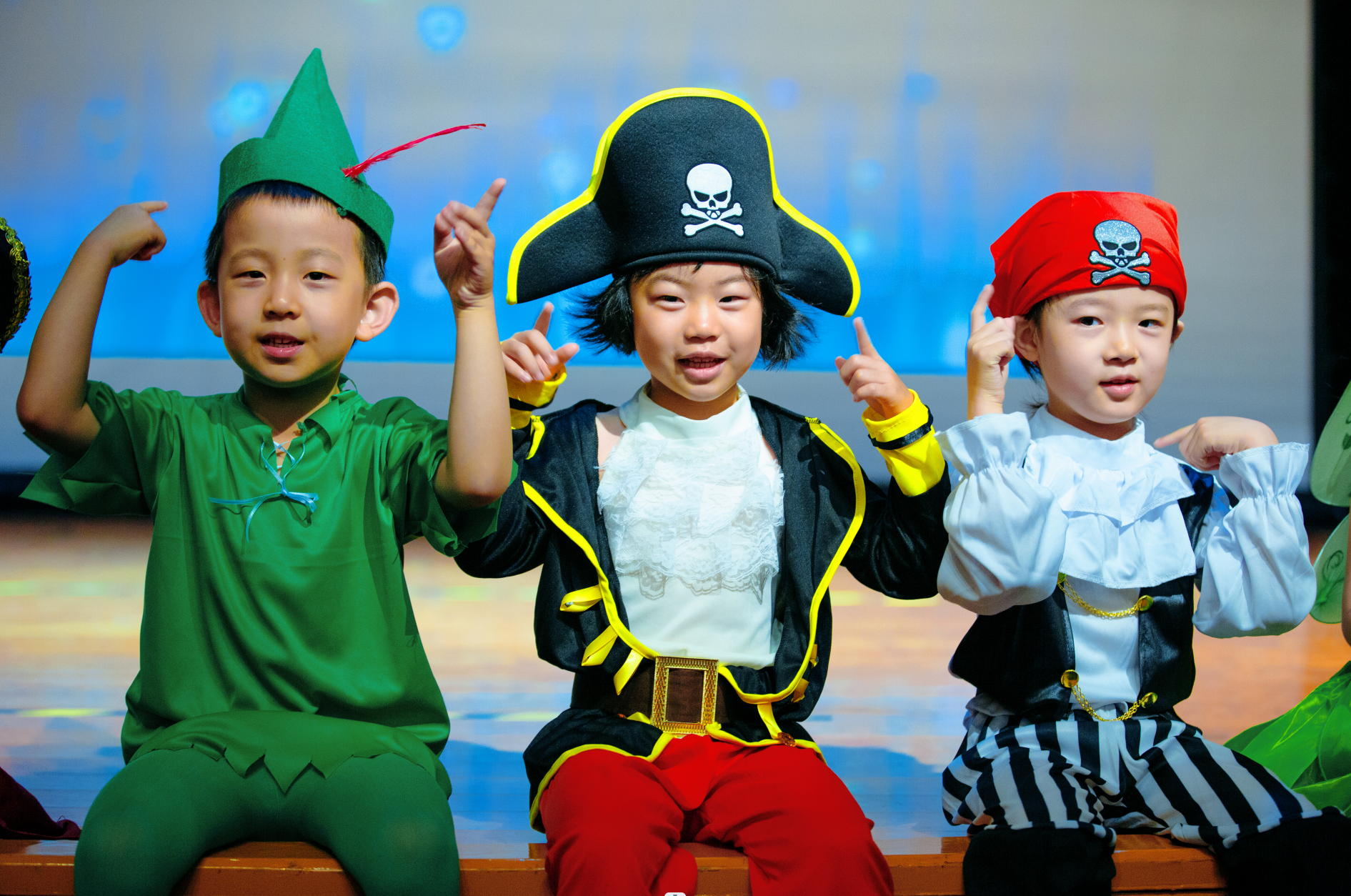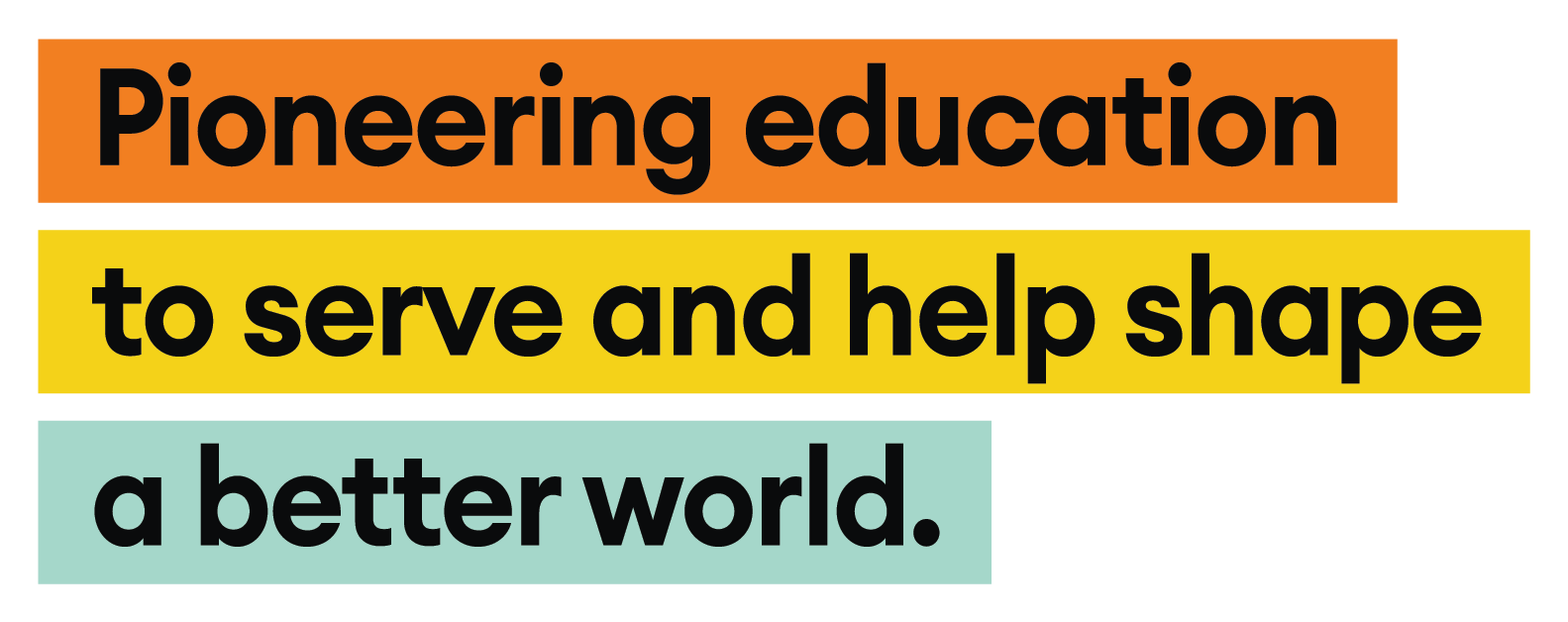Educational Insights Preparing pupils for a life in learning
12 Apr 2018
In this Educational Insights Series, experts from across the Wellington College group give advice, practical help and tips for parents who are keen to give further support for their children's learning. In this article from the series, Julian Jeffrey from Wellington College in Tianjin discusses about“Good schools know that in preparing their pupils for a life in learning."
 For many institutions, this aspect often remains implicit; here at Wellington, it is a central part of our commitment to our pupils and their parents. Wellingtonians are imbued with our core values of respect, courage, integrity, kindness and responsibility from their first days in school. In addition, our determination to make our graduating pupils ready for the world beyond Wellington means we look to develop in them a clear identity as young people. In this way, we foster in our students the famous ‘Five Is’: Wellington pupils leave us as inspired, intellectual, independent, inclusive, individual, well-equipped to face the challenges of life after school.
For many institutions, this aspect often remains implicit; here at Wellington, it is a central part of our commitment to our pupils and their parents. Wellingtonians are imbued with our core values of respect, courage, integrity, kindness and responsibility from their first days in school. In addition, our determination to make our graduating pupils ready for the world beyond Wellington means we look to develop in them a clear identity as young people. In this way, we foster in our students the famous ‘Five Is’: Wellington pupils leave us as inspired, intellectual, independent, inclusive, individual, well-equipped to face the challenges of life after school.
 I have often written about the importance of preparing children for the next stages of their lives, not simply settling for a short-term focus on admission to university. I want to encourage our students to raise their ambition and become genuinely engaged individuals, ready and able to participate in society for the rest of their lives. I have asked countless business leaders about what qualities they want to see from the young adults they interview, and it comes as no surprise to find that, as well as the core skills of reading, writing and arithmetic, these employers all want confident, problem-solving employees, able to communicate fluently and work collaboratively with others.
I have often written about the importance of preparing children for the next stages of their lives, not simply settling for a short-term focus on admission to university. I want to encourage our students to raise their ambition and become genuinely engaged individuals, ready and able to participate in society for the rest of their lives. I have asked countless business leaders about what qualities they want to see from the young adults they interview, and it comes as no surprise to find that, as well as the core skills of reading, writing and arithmetic, these employers all want confident, problem-solving employees, able to communicate fluently and work collaboratively with others.
 A 2013 survey of US businesses found that, “Nearly all those surveyed (93 percent) agree that ‘a candidate’s demonstrated capacity to think critically, communicate clearly, and solve complex problems is more important than their undergraduate major.’ More than nine in ten of those surveyed say it is important that those they hire demonstrate ethical judgment and integrity, intercultural skills, and the capacity for continued new learning.”
These are skills that are hard to acquire, but they make such a difference to the prospects of those entering the workforce, and a core part of a Wellington education is aimed at supporting this development in students. The school offers a values’-based education programme, an emphasis on active, engaged learning in the classroom and a strong commitment to a collaborative approach to problem solving. The role of the teacher thus encompasses both guide and mentor, not simply instructor.
A 2013 survey of US businesses found that, “Nearly all those surveyed (93 percent) agree that ‘a candidate’s demonstrated capacity to think critically, communicate clearly, and solve complex problems is more important than their undergraduate major.’ More than nine in ten of those surveyed say it is important that those they hire demonstrate ethical judgment and integrity, intercultural skills, and the capacity for continued new learning.”
These are skills that are hard to acquire, but they make such a difference to the prospects of those entering the workforce, and a core part of a Wellington education is aimed at supporting this development in students. The school offers a values’-based education programme, an emphasis on active, engaged learning in the classroom and a strong commitment to a collaborative approach to problem solving. The role of the teacher thus encompasses both guide and mentor, not simply instructor.
 From the Early Years’ experience in the Nest, with its application of the principles of child-initiated learning, to the discursive style of lessons in our A Level classes, teachers at Wellington seek to draw children into their own learning journey; to make them active particpants in the process of growing as lifelong learners. In these ways, children develop:
From the Early Years’ experience in the Nest, with its application of the principles of child-initiated learning, to the discursive style of lessons in our A Level classes, teachers at Wellington seek to draw children into their own learning journey; to make them active particpants in the process of growing as lifelong learners. In these ways, children develop:
 As the next generation of the global workforce matures, the skills required by employers will increasingly become the defining factor in a person’s success. The fluidity and mobility demanded by new job markets are still not easy to define, such is the speed and extent of change, but one thing is certain: the talents and skills of those in the highest positions of leadership will never have been so crucial in distinguishing between the best and the rest!
Julian Jeffrey is the Master of Wellington College in Tianjin. After University in Durham and Exeter, Julian began his career in 1991, teaching History in a north London Girls’ Independent School. He worked at Wellington College from January 1997, performing a variety of roles which included Head of Department, AS/A2 Public Exams’ Officer, and Assistant Housemaster. Latterly, he ran the school’s training programmes for the teaching staff, including the specific training of new teachers and the statutory induction of Newly Qualified Teachers (NQTs), as well as coaching sport and leading numerous school trips (for pupils, parents and staff) around the world. He also served for six years as a governor in an independent Preparatory School in Surrey. From 2014-2017, he was the Second Master and Head of the Senior School of Wellington College in Tianjin, prior to being appointed as the Master of the College.
As the next generation of the global workforce matures, the skills required by employers will increasingly become the defining factor in a person’s success. The fluidity and mobility demanded by new job markets are still not easy to define, such is the speed and extent of change, but one thing is certain: the talents and skills of those in the highest positions of leadership will never have been so crucial in distinguishing between the best and the rest!
Julian Jeffrey is the Master of Wellington College in Tianjin. After University in Durham and Exeter, Julian began his career in 1991, teaching History in a north London Girls’ Independent School. He worked at Wellington College from January 1997, performing a variety of roles which included Head of Department, AS/A2 Public Exams’ Officer, and Assistant Housemaster. Latterly, he ran the school’s training programmes for the teaching staff, including the specific training of new teachers and the statutory induction of Newly Qualified Teachers (NQTs), as well as coaching sport and leading numerous school trips (for pupils, parents and staff) around the world. He also served for six years as a governor in an independent Preparatory School in Surrey. From 2014-2017, he was the Second Master and Head of the Senior School of Wellington College in Tianjin, prior to being appointed as the Master of the College.
 Julian Jeffrey
Master
Julian Jeffrey
Master
 For many institutions, this aspect often remains implicit; here at Wellington, it is a central part of our commitment to our pupils and their parents. Wellingtonians are imbued with our core values of respect, courage, integrity, kindness and responsibility from their first days in school. In addition, our determination to make our graduating pupils ready for the world beyond Wellington means we look to develop in them a clear identity as young people. In this way, we foster in our students the famous ‘Five Is’: Wellington pupils leave us as inspired, intellectual, independent, inclusive, individual, well-equipped to face the challenges of life after school.
For many institutions, this aspect often remains implicit; here at Wellington, it is a central part of our commitment to our pupils and their parents. Wellingtonians are imbued with our core values of respect, courage, integrity, kindness and responsibility from their first days in school. In addition, our determination to make our graduating pupils ready for the world beyond Wellington means we look to develop in them a clear identity as young people. In this way, we foster in our students the famous ‘Five Is’: Wellington pupils leave us as inspired, intellectual, independent, inclusive, individual, well-equipped to face the challenges of life after school.
 I have often written about the importance of preparing children for the next stages of their lives, not simply settling for a short-term focus on admission to university. I want to encourage our students to raise their ambition and become genuinely engaged individuals, ready and able to participate in society for the rest of their lives. I have asked countless business leaders about what qualities they want to see from the young adults they interview, and it comes as no surprise to find that, as well as the core skills of reading, writing and arithmetic, these employers all want confident, problem-solving employees, able to communicate fluently and work collaboratively with others.
I have often written about the importance of preparing children for the next stages of their lives, not simply settling for a short-term focus on admission to university. I want to encourage our students to raise their ambition and become genuinely engaged individuals, ready and able to participate in society for the rest of their lives. I have asked countless business leaders about what qualities they want to see from the young adults they interview, and it comes as no surprise to find that, as well as the core skills of reading, writing and arithmetic, these employers all want confident, problem-solving employees, able to communicate fluently and work collaboratively with others.
 A 2013 survey of US businesses found that, “Nearly all those surveyed (93 percent) agree that ‘a candidate’s demonstrated capacity to think critically, communicate clearly, and solve complex problems is more important than their undergraduate major.’ More than nine in ten of those surveyed say it is important that those they hire demonstrate ethical judgment and integrity, intercultural skills, and the capacity for continued new learning.”
These are skills that are hard to acquire, but they make such a difference to the prospects of those entering the workforce, and a core part of a Wellington education is aimed at supporting this development in students. The school offers a values’-based education programme, an emphasis on active, engaged learning in the classroom and a strong commitment to a collaborative approach to problem solving. The role of the teacher thus encompasses both guide and mentor, not simply instructor.
A 2013 survey of US businesses found that, “Nearly all those surveyed (93 percent) agree that ‘a candidate’s demonstrated capacity to think critically, communicate clearly, and solve complex problems is more important than their undergraduate major.’ More than nine in ten of those surveyed say it is important that those they hire demonstrate ethical judgment and integrity, intercultural skills, and the capacity for continued new learning.”
These are skills that are hard to acquire, but they make such a difference to the prospects of those entering the workforce, and a core part of a Wellington education is aimed at supporting this development in students. The school offers a values’-based education programme, an emphasis on active, engaged learning in the classroom and a strong commitment to a collaborative approach to problem solving. The role of the teacher thus encompasses both guide and mentor, not simply instructor.
 From the Early Years’ experience in the Nest, with its application of the principles of child-initiated learning, to the discursive style of lessons in our A Level classes, teachers at Wellington seek to draw children into their own learning journey; to make them active particpants in the process of growing as lifelong learners. In these ways, children develop:
From the Early Years’ experience in the Nest, with its application of the principles of child-initiated learning, to the discursive style of lessons in our A Level classes, teachers at Wellington seek to draw children into their own learning journey; to make them active particpants in the process of growing as lifelong learners. In these ways, children develop:
Resilience Independence of mind Collaboration Courage to try something new
These are the skills they will need to become successful adults and productive members of society, even in the face of the other uncertainties of the 21st Century. As the next generation of the global workforce matures, the skills required by employers will increasingly become the defining factor in a person’s success. The fluidity and mobility demanded by new job markets are still not easy to define, such is the speed and extent of change, but one thing is certain: the talents and skills of those in the highest positions of leadership will never have been so crucial in distinguishing between the best and the rest!
Julian Jeffrey is the Master of Wellington College in Tianjin. After University in Durham and Exeter, Julian began his career in 1991, teaching History in a north London Girls’ Independent School. He worked at Wellington College from January 1997, performing a variety of roles which included Head of Department, AS/A2 Public Exams’ Officer, and Assistant Housemaster. Latterly, he ran the school’s training programmes for the teaching staff, including the specific training of new teachers and the statutory induction of Newly Qualified Teachers (NQTs), as well as coaching sport and leading numerous school trips (for pupils, parents and staff) around the world. He also served for six years as a governor in an independent Preparatory School in Surrey. From 2014-2017, he was the Second Master and Head of the Senior School of Wellington College in Tianjin, prior to being appointed as the Master of the College.
As the next generation of the global workforce matures, the skills required by employers will increasingly become the defining factor in a person’s success. The fluidity and mobility demanded by new job markets are still not easy to define, such is the speed and extent of change, but one thing is certain: the talents and skills of those in the highest positions of leadership will never have been so crucial in distinguishing between the best and the rest!
Julian Jeffrey is the Master of Wellington College in Tianjin. After University in Durham and Exeter, Julian began his career in 1991, teaching History in a north London Girls’ Independent School. He worked at Wellington College from January 1997, performing a variety of roles which included Head of Department, AS/A2 Public Exams’ Officer, and Assistant Housemaster. Latterly, he ran the school’s training programmes for the teaching staff, including the specific training of new teachers and the statutory induction of Newly Qualified Teachers (NQTs), as well as coaching sport and leading numerous school trips (for pupils, parents and staff) around the world. He also served for six years as a governor in an independent Preparatory School in Surrey. From 2014-2017, he was the Second Master and Head of the Senior School of Wellington College in Tianjin, prior to being appointed as the Master of the College. Related Articles

Global Cuisine Event Highlights in Wellington10 Jan 2025
Last semester, Wellington College Tianjin, in collaboration with Sodexo, hosted an array of vibrant food-themed events. Centred around the themes of "Global Citizenship" and "Sustainable Development,
Read More

Introducing 2025 EdFest Speakers21 Mar 2025
China Festival of Education We are thrilled to announce the lineup of speakers for the 2025 China Festival of Education. On Saturday 12 April we will bring together leading educators, executives and t
Read More

Preparing Your Little One for the Start of School15 Aug 2024
Lisa LiCo-Head of Early YearsAs we approach the end of summer break, I wanted to take a moment to reach out and check in with every one of you. I hope that you all are doing well and that your summer
Read More





 Channel
Channel 
 Linkedin
Linkedin  Weibo
Weibo  Facebook
Facebook  Ins
Ins 







